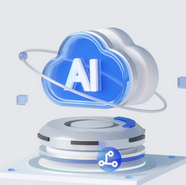人工智能利弊 英语视频
深度学习
2024-03-09 16:00
937
联系人:
联系方式:
阅读提示:本文共计约3244个文字,预计阅读时间需要大约9分钟,由本站编辑整理创作于2023年11月08日22时07分29秒。
Title: The Pros and Cons of Artificial Intelligence
Introduction
Artificial intelligence (AI) has become an integral part of our daily lives, from smartphones and computers to self-driving cars and smart homes. AI technology is advancing at a rapid pace, offering numerous benefits but also posing potential risks. This article will explore the advantages and disadvantages of AI, highlighting both its positive and negative impacts on society.
Advantages of AI
-
Efficiency and productivity: AI systems can process vast amounts of data quickly and accurately, enabling businesses and organizations to make informed decisions and improve efficiency. This can lead to increased productivity and cost savings.
-
Personalization: AI algorithms can analyze individual preferences and behaviors, providing personalized recommendations and experiences. This can enhance customer satisfaction and loyalty in various industries, such as e-commerce, entertainment, and healthcare.
-
Safety and security: AI-powered surveillance systems can help prevent crime and ensure public safety. Additionally, AI technologies can be used to detect and prevent cyber-attacks, protecting critical infrastructure and personal data.
-
Accessibility and inclusion: AI-enabled tools can assist people with disabilities, making technology more accessible and inclusive. For example, speech recognition software can enable voice control for those who have difficulty using a keyboard or touchscreen.
Disadvantages of AI
-
Job displacement: AI systems can replace human labor in certain tasks, leading to job displacement and unemployment. This can exacerbate income inequality and social unrest.
-
Privacy concerns: AI algorithms often require access to large amounts of personal data to function effectively. This can raise privacy concerns, as individuals may feel their information is being collected and analyzed without their knowledge or consent.
-
Ethical concerns: AI systems can be biased if they are trained on data that reflects existing societal inequalities. This can result in unfair treatment of certain groups, such as minorities or women. Additionally, AI technologies raise questions about accountability and responsibility when mistakes occur.
-
Dependency: As AI systems become more advanced, people may become increasingly dependent on them, leading to a loss of critical thinking and decision-making skills. This can have negative consequences for individuals and society as a whole.
Conclusion
Artificial intelligence offers numerous advantages, from increased efficiency and productivity to improved accessibility and inclusion. However, it also presents challenges, such as job displacement, privacy concerns, and ethical issues. To fully harness the benefits of AI while minimizing its negative impacts, governments, businesses, and individuals must work together to develop policies and practices that promote responsible AI use and foster a more equitable and sustainable future.
本站涵盖的内容、图片、视频等数据系网络收集,部分未能与原作者取得联系。若涉及版权问题,请联系我们进行删除!谢谢大家!
阅读提示:本文共计约3244个文字,预计阅读时间需要大约9分钟,由本站编辑整理创作于2023年11月08日22时07分29秒。
Title: The Pros and Cons of Artificial Intelligence
Introduction
Artificial intelligence (AI) has become an integral part of our daily lives, from smartphones and computers to self-driving cars and smart homes. AI technology is advancing at a rapid pace, offering numerous benefits but also posing potential risks. This article will explore the advantages and disadvantages of AI, highlighting both its positive and negative impacts on society.
Advantages of AI
-
Efficiency and productivity: AI systems can process vast amounts of data quickly and accurately, enabling businesses and organizations to make informed decisions and improve efficiency. This can lead to increased productivity and cost savings.
-
Personalization: AI algorithms can analyze individual preferences and behaviors, providing personalized recommendations and experiences. This can enhance customer satisfaction and loyalty in various industries, such as e-commerce, entertainment, and healthcare.
-
Safety and security: AI-powered surveillance systems can help prevent crime and ensure public safety. Additionally, AI technologies can be used to detect and prevent cyber-attacks, protecting critical infrastructure and personal data.
-
Accessibility and inclusion: AI-enabled tools can assist people with disabilities, making technology more accessible and inclusive. For example, speech recognition software can enable voice control for those who have difficulty using a keyboard or touchscreen.
Disadvantages of AI
-
Job displacement: AI systems can replace human labor in certain tasks, leading to job displacement and unemployment. This can exacerbate income inequality and social unrest.
-
Privacy concerns: AI algorithms often require access to large amounts of personal data to function effectively. This can raise privacy concerns, as individuals may feel their information is being collected and analyzed without their knowledge or consent.
-
Ethical concerns: AI systems can be biased if they are trained on data that reflects existing societal inequalities. This can result in unfair treatment of certain groups, such as minorities or women. Additionally, AI technologies raise questions about accountability and responsibility when mistakes occur.
-
Dependency: As AI systems become more advanced, people may become increasingly dependent on them, leading to a loss of critical thinking and decision-making skills. This can have negative consequences for individuals and society as a whole.
Conclusion
Artificial intelligence offers numerous advantages, from increased efficiency and productivity to improved accessibility and inclusion. However, it also presents challenges, such as job displacement, privacy concerns, and ethical issues. To fully harness the benefits of AI while minimizing its negative impacts, governments, businesses, and individuals must work together to develop policies and practices that promote responsible AI use and foster a more equitable and sustainable future.
本站涵盖的内容、图片、视频等数据系网络收集,部分未能与原作者取得联系。若涉及版权问题,请联系我们进行删除!谢谢大家!


